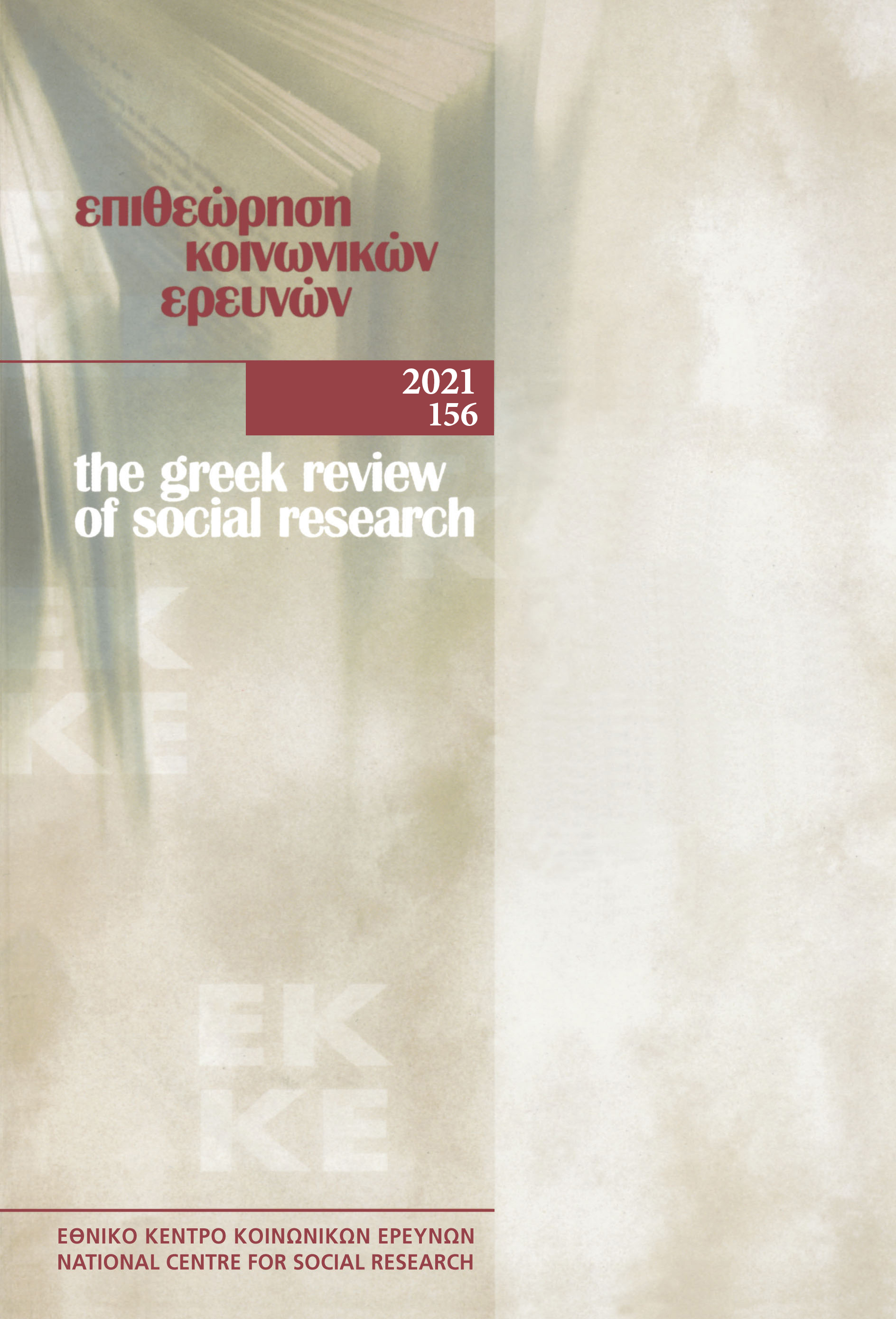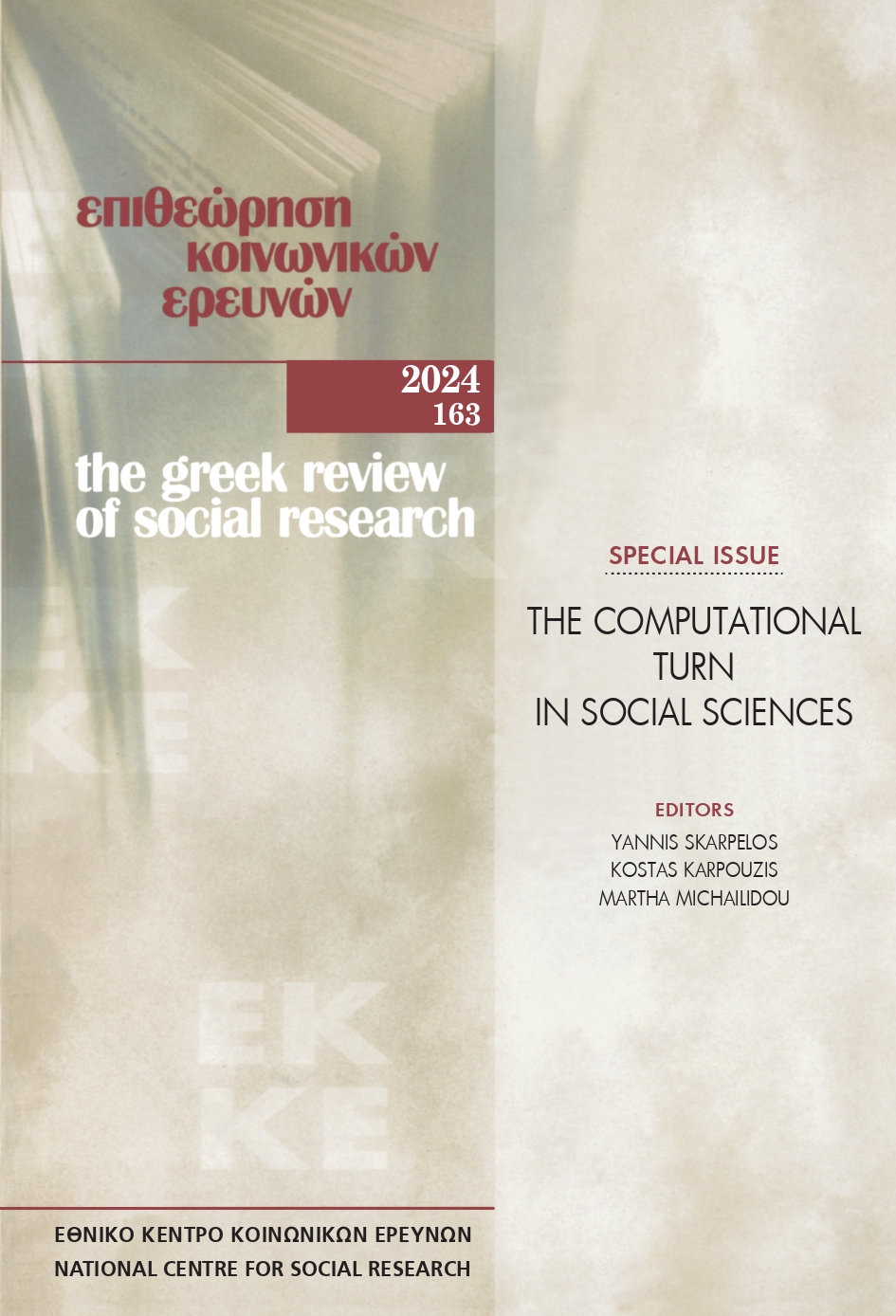Social inequalities in the distribution of social capital indicators among internet users and non-users

Abstract
In this article we explore two dimensions of social capital, in particular social trust and the informal networks of internet users and non-users. For this purpose, we use empirical data from the 3rd wave of the World Internet Project (WIP) which took place in 2019. Data analysis shows that internet users have greater stock of social capital compared to the non-users, with regards to both dimensions of social capital, i.e. social trust and informal networks. However, data analysis also shows that the use of internet is not directly connected to most indicators of social capital. Instead, the use of internet is connected to users’ socio-economic and demographic characteristics, which eventually differentiate the distribution of social capital.
Article Details
- How to Cite
-
Linardis, A., & Fragoulis, G. (2022). Social inequalities in the distribution of social capital indicators among internet users and non-users. The Greek Review of Social Research, 156, 175–203. https://doi.org/10.12681/grsr.25951 (Original work published January 27, 2021)
- Issue
- 2021: 156
- Section
- Articles

This work is licensed under a Creative Commons Attribution-NonCommercial 4.0 International License.
Authors who publish with this journal agree to the following terms:
- Authors retain copyright and grant the journal right of first publication with the work simultaneously licensed under a Creative Commons Attribution Non-Commercial License that allows others to share the work with an acknowledgement of the work's authorship and initial publication in this journal.
- Authors are able to enter into separate, additional contractual arrangements for the non-exclusive distribution of the journal's published version of the work (e.g. post it to an institutional repository or publish it in a book), with an acknowledgement of its initial publication in this journal.
- Authors are permitted and encouraged to post their work online (preferably in institutional repositories or on their website) prior to and during the submission process, as it can lead to productive exchanges, as well as earlier and greater citation of published work (See The Effect of Open Access).



